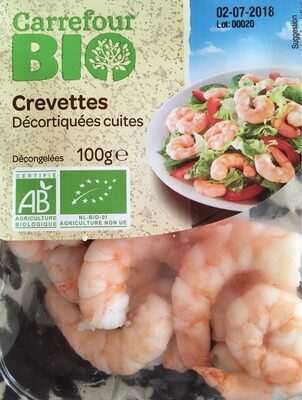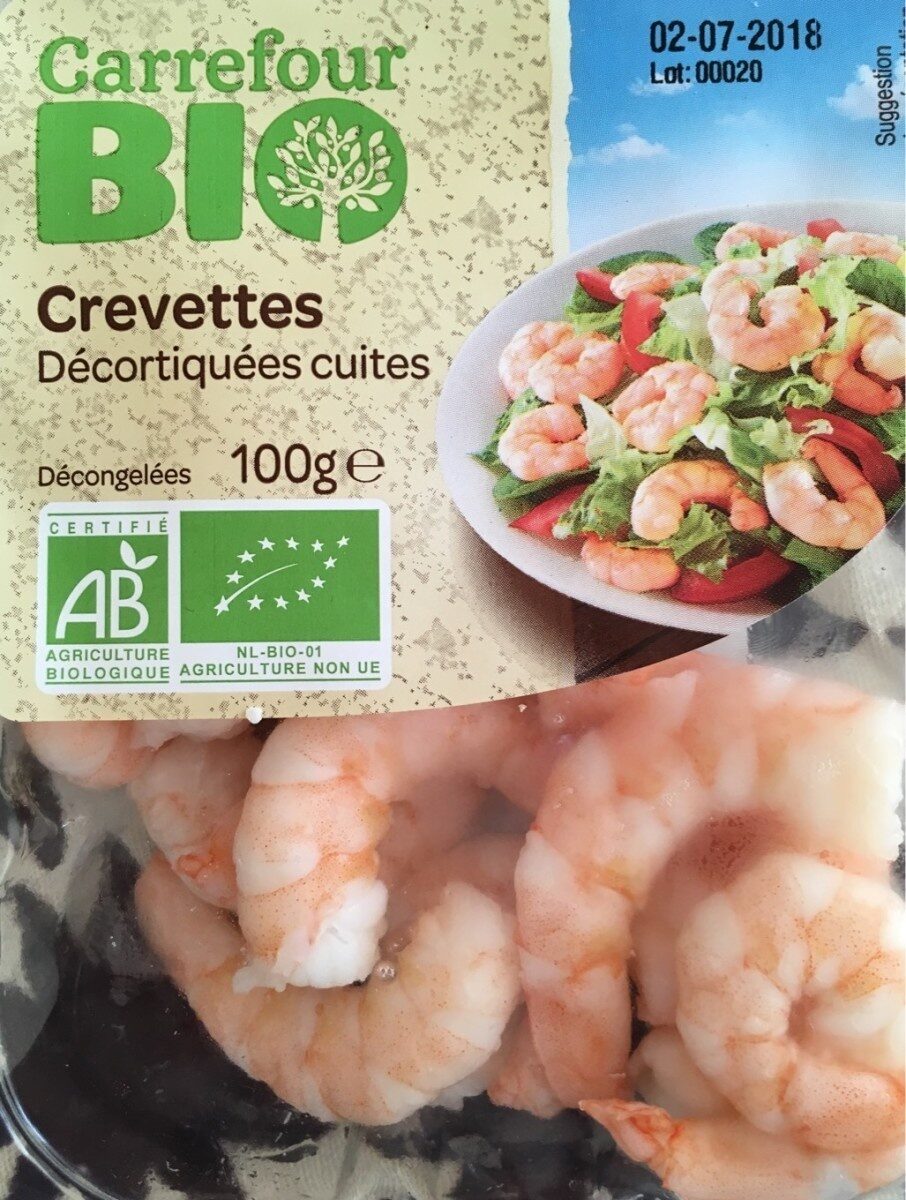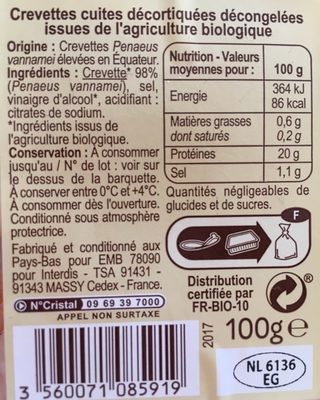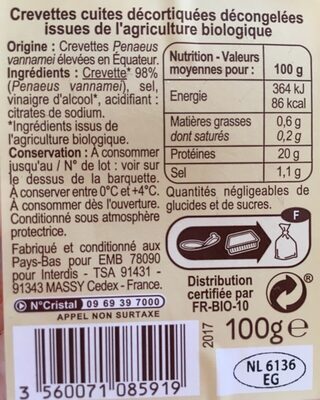Crevettes décortiquées cuites bio - Carrefour Bio - 100 g
Some of the data for this product has been provided directly by the manufacturer Carrefour.
Barcode: 3560071085919 (EAN / EAN-13)
Common name: Crevettes cuites décortiquées issues de l'agriculture biologique
Quantity: 100 g
Packaging: Plastic, Bag, Fresh
Brands: Carrefour Bio, Carrefour
Categories: Seafood, Crustaceans, Shrimps, Prawns, fr:Crevettes décortiquées
Labels, certifications, awards:
Organic, EU Organic, Non-EU Agriculture, FR-BIO-10, Green Dot, NL-BIO-01, AB Agriculture Biologique, Nl-bio-13


Origin of the product and/or its ingredients: élevées au Honduras/en Equateur
Origin of ingredients: Ecuador
Manufacturing or processing places: Honduras
Traceability code: NL 6136 EG, EMB 78090 - Bouafle (Yvelines, France)
Link to the product page on the official site of the producer: https://www.carrefour.fr/p/crevettes-dec...
Stores: Carrefour, carrefour.fr, Carrefour market
Countries where sold: France
Matching with your preferences
Report a problem
Data sources
Product added on by kiliweb
Last edit of product page on by quechoisir.
Product page also edited by alexfauquette, charlesnepote, date-limite-app, didierg, driveoff, malinou, moon-rabbit, openfoodfacts-contributors, org-carrefour, packbot, quentinbrd, roboto-app, sebleouf, teolemon, yuka.VnE4K1BxY0lncWdqdmZRRjRDM3Bxb0o0eklDYlRIeXNMZm8vSVE9PQ, yuka.sY2b0xO6T85zoF3NwEKvlmVsYfWC_hHpMhfQmWq6z4iiArLRUctXxrnmIqs.














